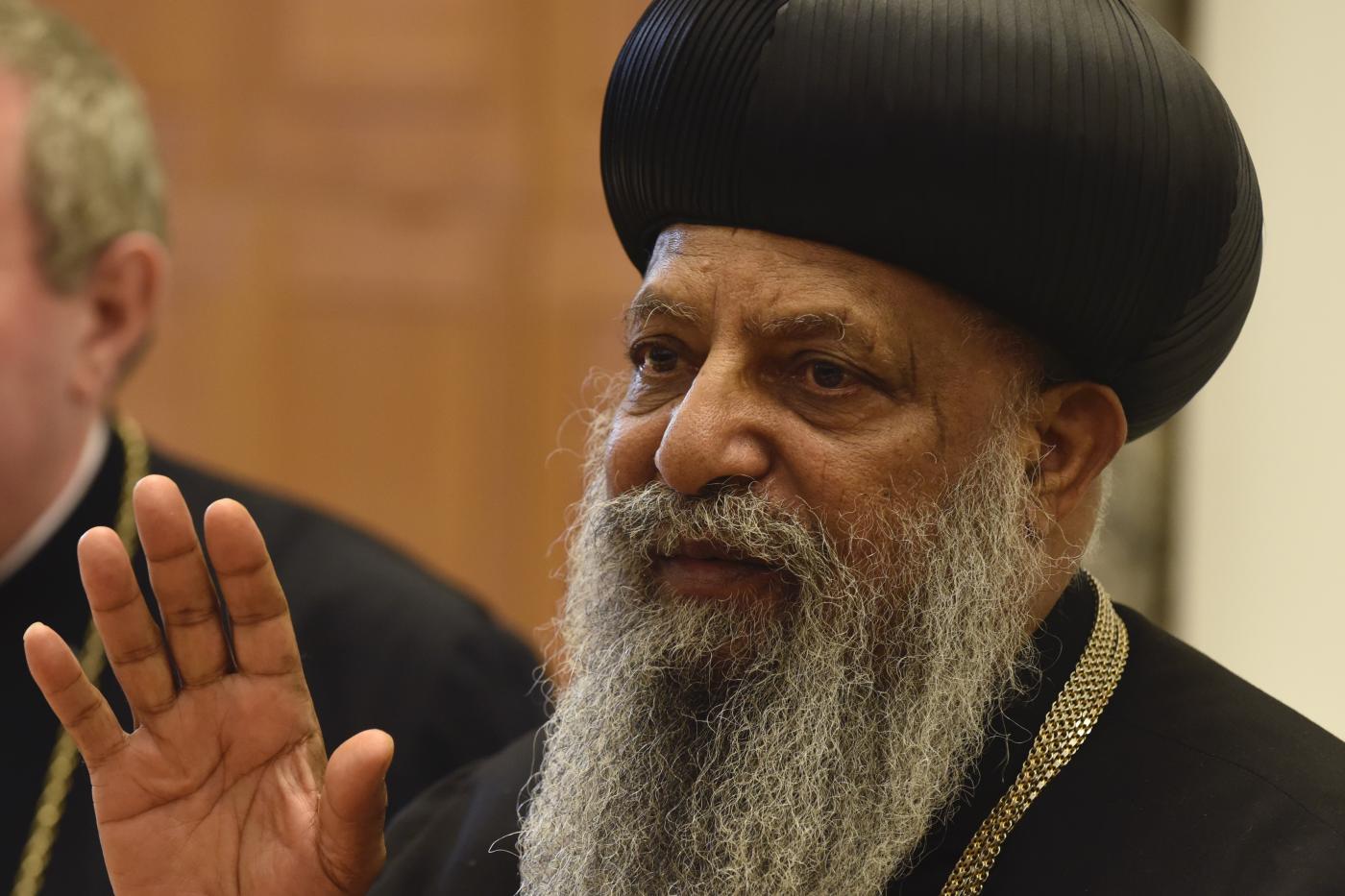By Fredrick Nzwili *
In Meskel celebrations held under World Health Organization COVID-19 safety protocols, Abune Mathias, patriarch of the Ethiopian Orthodox Tewahedo Church, called for dialogue, peace and reconciliation in the country, where ethnic tensions recently flared up.
At the Meskel Square—a ground in the capital, Addis Ababa named after the festival and where the celebrations are traditionally held—the 78-year-old patriarch urged politicians, students and the media to shun actions that threaten the country’s peace and unity.
“The behaviour that we have been observing in the country these days is against the real character of Ethiopians,” said the leader on 26 September.
The Meskel is a Christian holiday in the Ethiopian and Eritrean Orthodox Churches which commemorates the discovery of the true Cross by Saint Helena (Empress Helena), the mother of Emperor Constantine in the fourth century. According to Orthodox Church traditions, this is the cross on which Jesus was crucified.
The festival is held on the 17 Meskerem (September) in the Ethiopian calendar (September 27 Gregorian calendar or September 28 on a leap year). Historical accounts indicate that the festival has been celebrated in Ethiopia for more than 1,600 years.
The patriarch was addressing the celebrations marking the Demera—the bonfires lit on eve of the festival. Smoke from the fires signify that which led Helena to spot where the cross was buried.
Recently, several churches—including Orthodox ones—have been burnt down and some priests killed. In a report in August, the church noted that the attacks, which were “transitional and cleansing of Orthodox Church activities,” could lead to a worse outcome.
Abune Mathias stressed that strengthening Ethiopia’s unity—existing for hundreds of years—was paramount, as he highlighted the horn of Africa country’s values of togetherness, sharing, mutual respect, and support for one another.
“Destroying property is not the way towards prosperity,” the patriarch warned.
Sahle-Work Zewde, the country’s president, Adanech Abiebie, deputy mayor of Addis Ababa, Orthodox Church leaders and diplomats had attended the event.
“Working in concert, we can climb the ladder of greatness,” Abiebie told the gathering.
The festival had been downsized due to COVID-19, with an estimated 5,000 people attending the celebrations. Small participants—members of the Orthodox Church—also celebrated the festival in the streets. In normal times, attendance can reach over 500,000.
Ethiopian prime minister Abiy Ahmed had extended good wishes to Ethiopians during the celebrations, saying the finding of the cross occurred due to an unwavering zeal of Christians who tirelessly excavated the land it was buried.
“The cross is a sign of victory and test for Christians. Our fathers say there is no respect without test. And the cross reminds us of sacrifice and test, which no one can be left behind,” said Ahmed in a statement in Amharic on 25 September.
In 2013, the United Nations Education Scientific and Cultural Organization registered the feast as an Intangible World Heritage celebrated by followers of the Ethiopian Orthodox Tewahedo Church.
* Fredrick Nzwili is a freelance journalist based in Nairobi, Kenya.
